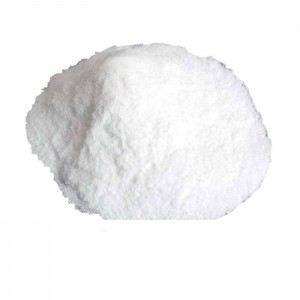Carbasalate Calcium 98%
Basic Information
| Product Name | Carbasalate Calcium |
| CAS | 5749-67-7 |
| Molecular Formula | C10H14CaN2O5 |
| Molecular Weight | 282.31 |
| Appearance | Powder |
| Color | White to Off-White |
| Storage | Inert atmosphere,Room Temperature |
| Solubility | Freely soluble in water and in dimethylformamide, practically insoluble in acetone and in anhydrous methanol. |
Additional Information
| Packing | 25KG/drum, or according to customized requirements |
| Productivity | 1000 tons/year |
| Brand | Senton |
| Transportation | sea, land, air, |
| Origin | China |
| HS Code | |
| Port | Shanghai,Qingdao,Tianjin |
Product Description
This product is a white crystalline powder with a slightly bitter taste and is highly soluble in water. It is a complex of Aspirin calcium and urea. Its metabolic characteristics and pharmacological effects are the same as aspirin. It has antipyretic, analgesic, anti-inflammatory and inhibiting platelet aggregation effects, and can prevent thrombosis caused by various reasons. Oral absorption is rapid, effective, highly bioavailable, metabolized by the liver and excreted by the kidneys.
Product Usage
Oral administration: the adult dosage of antipyretic and analgesic is 0.6g each time, three times a day, and once every four hours if necessary, with a total amount of no more than 3.6g a day; Anti rheumatism 1.2g each time, 3-4 times a day, children follow medical advice.
Pediatric dose: 50mg/dose from birth to 6 months; 50-100mg/dose from 6 months to 1 year old; 0.1-0.15g/time for 1-4 years old; 0.15-0.2g/time for 4-6 years old; 0.2-0.25g/dose for 6-9 years old; 9-14 years old, 0.25-0.3g/time is required and can be repeated after 2-4 hours.
Precautions
1. Patients with ulcerative disease, history of salicylic acid allergy, congenital or acquired hemorrhagic diseases are prohibited.
2. Women should take it under the guidance of a doctor during pregnancy and lactation.
3. It is best not to use it for the first 3 months of pregnancy and not to use it for the last 4 weeks.
4. Not suitable for liver and kidney dysfunction, asthma, excessive menstruation, gout, tooth extraction, and before and after drinking alcohol.
5. Anticoagulant therapy should be used with caution for patients.












